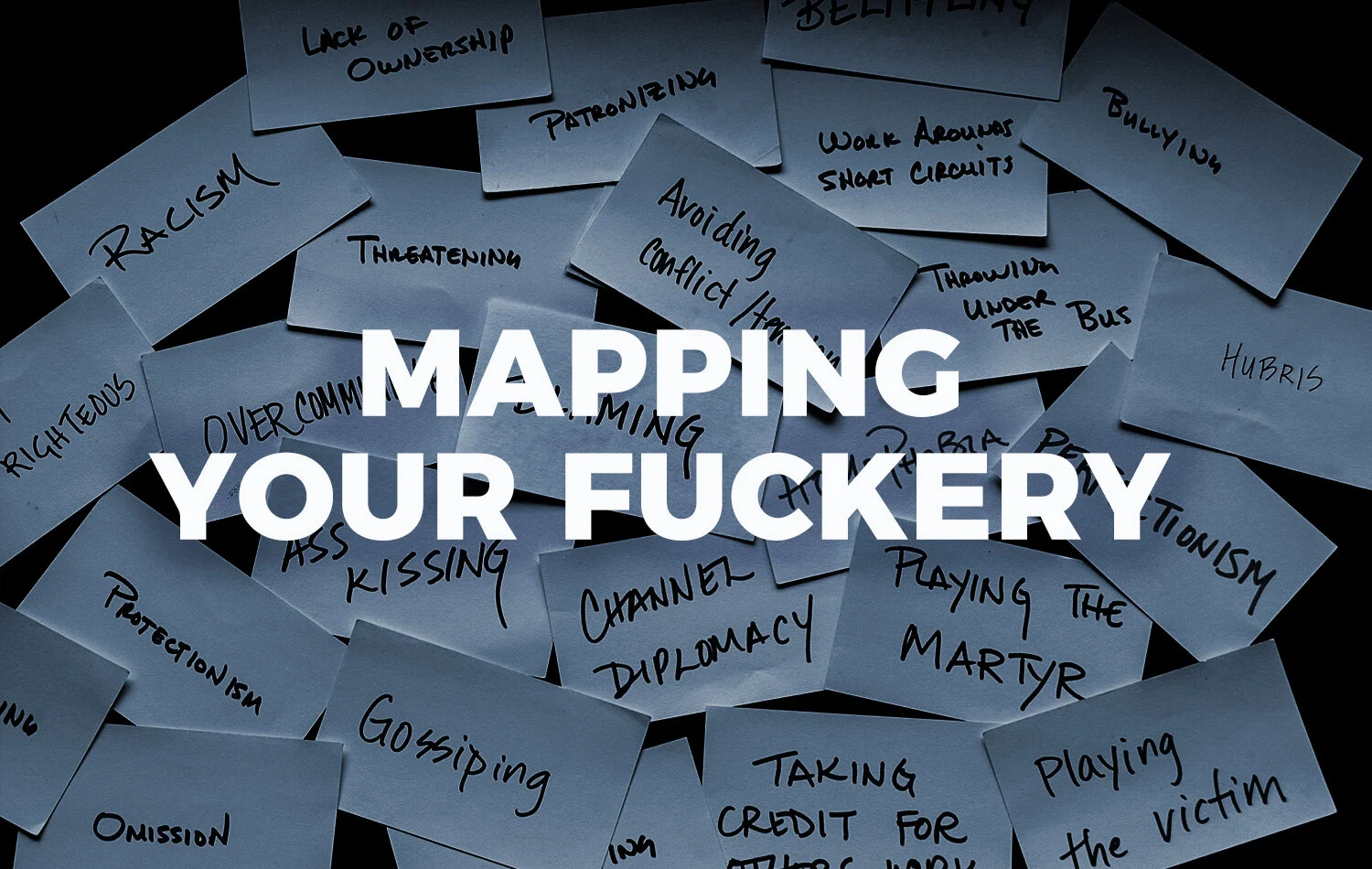Trying to be “nice” and using euphemisms to remain comfortable, rather than communicating directly is a form of fucker. Honesty can feel uncomfortable—both to receive and to give. But being willing to be vulnerable—to become uncomfortable with discomfort—is part and parcel of effective communication and leads to greater understanding and connection.
Read MoreLeadership requires honed skills and mastery of tools. The samurai teaches, “Efficiency and smooth progress, prudence in all matters, recognizing true courage, recognizing different levels of morale, instilling confidence, and realizing what can and cannot be reasonably expected.” As the samurai relies on two swords—one long and one short—to achieve mastery, so too can today’s leaders benefit from cultivating the two swords of Discovery and Direction.
Read MoreI have had an emotional hangover all month. What I (and many black women) need are trusted, sensitive, woke allies, advocates, and activists in which we can share our emotional burdens. I am trying to do that for the folks at the front lines of racial inequity, but I have limited capacity.
Read MoreCultivating psychological safety means that you get really good at authentic deep listening and expressing empathy. It means that you invite vulnerability into the conversations through sharing your own. It means prioritizing diversity and inclusion to ensure a strong sense of team belongingness.
Read MoreAs white women—and men—I believe it is incumbent upon all of us to examine our biases and our privilege as the first step to dismantling racism. As with everything I teach and do, we’ve got to Name It to Tame It. Toppling monuments and protesting police brutality are external signs. But there are other, less visible changes that are of critical importance. We must—those of us with white privilege—take a fearless moral inventory of our roots, our conditioning, and the subtle (or not so subtle) ways we keep racism alive, even if only through our silence and complacency. This is the work.
Read MoreSelf-care is often understood primarily as external activities you do to take care of yourself. External activities can be helpful but the internal aspect of self-care is where we move from self-soothing to self-empowerment. It’s a big red flag when self-care enthusiasts try to tell you how to take care of yourself. No one can tell us what we need. The answers lie within.
Read MoreEveryone—regardless of their title or expertise—has a “zone of genius”, that place where either 10,000 hours of experience or innate talent or a little of both come together masterfully. Put another way, mastery is your zone of genius. It’s your A-game, your superpower—that thing you do like nobody else. And nothing shuts it down—not even a pandemic.
Read MoreGreat ideas are often birthed by a group of creative individuals—artists, curators, thinkers, theorists, and other tastemakers—who make up an ‘ecology of talent.’ ” That collective intelligence is known as ‘scenius’. It’s the wisdom of a group of folks who trigger our a-ha moments and connect us to our individual mastery in a new way, juxtaposed by their own. Simply put, scenius is the collective intelligence of community.
Read MoreNo one goes through life without stumbling over their own fuckery. The RADIUS ECD method helps you transform your personal Fuckery—whatever it might be—through self-inquiry and structured exercises. In this article, we introduce the Fuckery Deck, our foundational approach to mapping behavioral change.
Read MoreDuring times of crisis, businesses should continue to sell their goods and services is they can. We’ve all got to keep the lights on and food in our bellies. But messaging and marketing needs to be adjusted to reflect our shared reality. Communication needs to be thoughtful, authentic and lead with empathy—without expectation of gain. We don’t need more businesses selling us crap we don’t need and can’t afford. We need an infusion of humanity into our business dealings on a massive scale.
Read More










